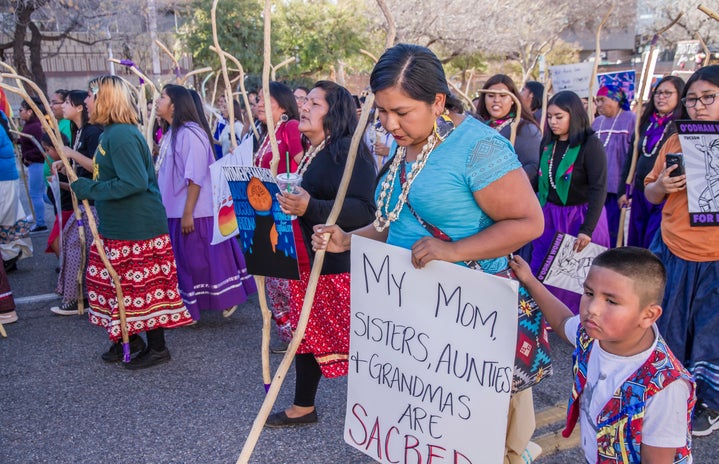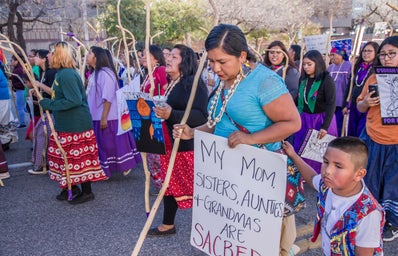Thanksgiving’s troubling past draws into question our celebration of it, especially when Native American communities continue to be harmed by the American government’s actions. The intended message of Thanksgiving is one of gratitude, hope, and relationships, but the actions of the first Thanksgiving back in 1621 stand in stark contrast to this message.
The Europeans who settled at Plymouth brought disease and limited knowledge of how to use the land to grow crops. The Native American Wampanoag tribe with whom the alliance was formed was also decimated by enemy tribes. The reality is that the relationship between Native Americans and the colonizers was more transactional than anything. Their alliance was built on a desperate trust and did not last for long.
In school, I remember learning about Thanksgiving as a holiday of peace between the native tribes and European colonists. However, we were not taught that this was a day born out of necessity rather than one brought upon by peace. Hidden by the wholesome story of the shared meal was the bloodshed, war and famine that interactions between the pilgrims and Native Americans brought.
It is time for schools’ curriculums to reflect the truth. Instead of focusing on the mostly fictional narrative of the “first Thanksgiving” dinner that was had, schools should use the week to discuss the history of the holiday. The first step in remaking the holiday would be to acknowledge that it has been taught and celebrated wrong. Taking time to analyze how the holiday has been rewritten into a peaceful one would be a great lesson on historical bias. It would show students that a single event can be portrayed in so many different ways, and history is often written from the most dominant perspective.
Additionally, many non-indigenous minorities feel pressure to celebrate American holidays such as Thanksgiving in order to fit in with the majority of the population. What is ironic is that many minorities faced the same discrimination and racism when they first immigrated to the United States as the Native Americans faced. By changing the narrative of Thanksgiving, minority communities would actually be able to relate more to the holiday and to the Native American population in our country.
Although the real Thanksgiving is much different from the romanticized picture that most of us believe, we should still celebrate the holiday. However, our reasons for celebrating the holiday are what should change. A modern Thanksgiving would exchange patriotism for awareness. Rather than applauding the pilgrims for making peace with the Native Americans, we should celebrate more of Native American culture in a respectful way by learning about its history and present. This type of nuanced education would define the difference between appropriation and appreciation.
Thanksgiving should also be a time to celebrate how far the country has come in mending the relationship between this land’s native people and its immigrants. While nowhere near perfect, looking back on our country’s progress can inspire us to go further in repairing the lands and culture that has been largely taken away from Native American tribes.


